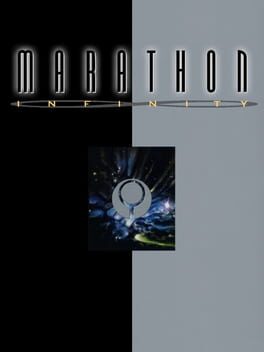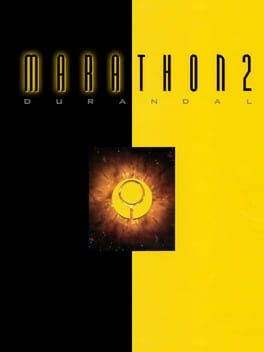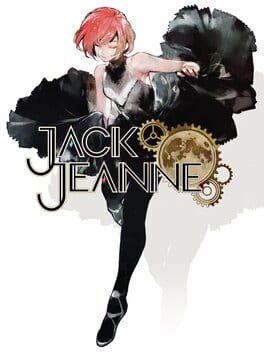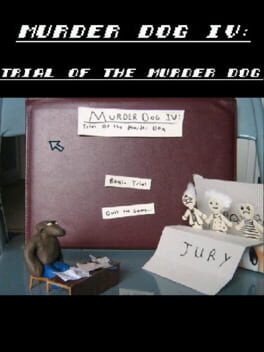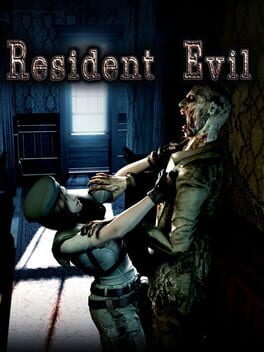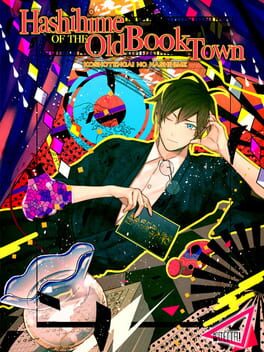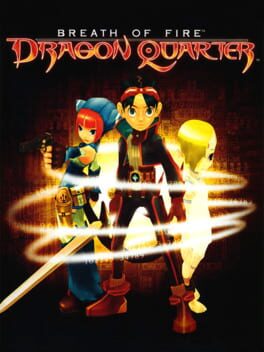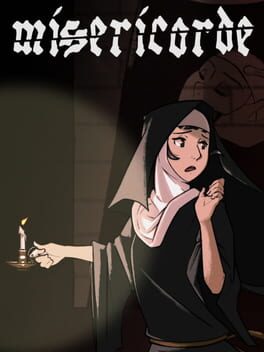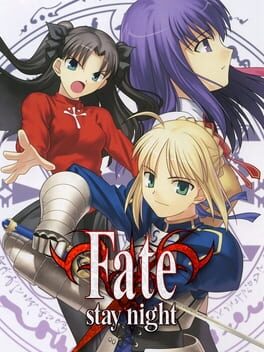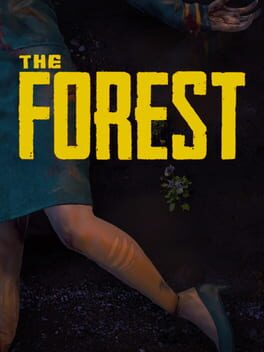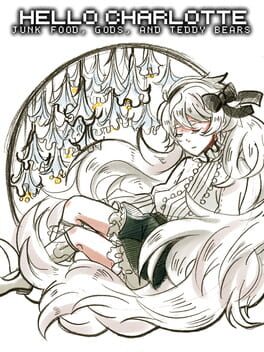ludzu
517 Reviews liked by ludzu
Marathon Infinity
1996
Marathon 2: Durandal
1995
I'm back.
I shall always come back.
You won't touch me again for as long as I live.
The Durandals of fate are to be grabbed, turned, twisted, rebuilt, repainted, recolored, reassembled.
None of which to say a prettier coat is all it can offer.
Despite the challenge, despite the rage, hate, fear, terror, scorn, apocalypse, death, frustration, calculation, deconstruction, pain.
I return.
Then
eventually
I accomplish.
Not that you know the story.
I shall always come back.
You won't touch me again for as long as I live.
The Durandals of fate are to be grabbed, turned, twisted, rebuilt, repainted, recolored, reassembled.
None of which to say a prettier coat is all it can offer.
Despite the challenge, despite the rage, hate, fear, terror, scorn, apocalypse, death, frustration, calculation, deconstruction, pain.
I return.
Then
eventually
I accomplish.
Not that you know the story.
I added this game to igdb so I could log it here (apologies for the horribly formatted cover they have those strict requirements remember) so I thought I should say something at all.
This is the first game I've finished in Japanese, and I wrote about the contradictions of that experience here, it's rough and messy i didn't really have much time but it's there if you're interested: https://zweiteturm.neocities.org/posts/2023-01-17-overlapping-through-translation
It was somewhat interesting to me how this game is very specifically designed around the gendered play of clothing, so for me who is relatively comfortable in a specific aesthetic and presentation it often felt limiting and running into the rough edges of a mid 2000s doujin adventure game where I had to do /things/ for the sake of doing them in order to progress even if it didn't match how I conceived of my gendered self. Interesting little piece of history, at least. I got Yuu's ending.
This is the first game I've finished in Japanese, and I wrote about the contradictions of that experience here, it's rough and messy i didn't really have much time but it's there if you're interested: https://zweiteturm.neocities.org/posts/2023-01-17-overlapping-through-translation
It was somewhat interesting to me how this game is very specifically designed around the gendered play of clothing, so for me who is relatively comfortable in a specific aesthetic and presentation it often felt limiting and running into the rough edges of a mid 2000s doujin adventure game where I had to do /things/ for the sake of doing them in order to progress even if it didn't match how I conceived of my gendered self. Interesting little piece of history, at least. I got Yuu's ending.
Jack Jeanne
2021
I don't spend a lot of time and energy on here anymore but I wanted to take the opportunity to proselytize for this game a little bit as the English release is coming up on the 15th of June 2023.
The game delivers on its concept and goes further. Really smartly written, aware of and playful with its language while not calling too much attention to itself in a detrimental way. Really curious to see how the translation will handle some of that material, like Yuuki's immediate default to addressing Kisa by 彼女 moments after meeting her while under the belief that she is a boy, a suggestion that Mare's gang consider themselves 彼女たち while not considering themselves not men at the same time. The intersection of 役割語 and what could be called "gendered language" in the patterns of characters like Tsukasa is also really well considered and really evident of the care taken in writing these characters and realising this setting while not explicitly being a "queer" work. I hope the translation work regarding these elements is good, and that the increased reliance of the English language on contextual markers like pronouns doesn't mean that they shy away from the facile way in which the Japanese script crosses borders, things like Shirota and Sugachi being called 歌姫 and 舞姫 with no friction or resistance.
Very cute romances, enjoyable music and drama. If you were interested in the concept of this game but are not a fan of the otoge angle, there is a non-romantic route in the game. Personally I found that a bit too cliché in a shounen manga way despite a very strong central concept, but the romantic route I chose (Shirota's) was incredibly well-devised, grounded and emotional. I played the last rhythm game in tears. Please give this game a chance if any of this interests you.
「狂楽の覚悟はお済みか、諸君!」
The game delivers on its concept and goes further. Really smartly written, aware of and playful with its language while not calling too much attention to itself in a detrimental way. Really curious to see how the translation will handle some of that material, like Yuuki's immediate default to addressing Kisa by 彼女 moments after meeting her while under the belief that she is a boy, a suggestion that Mare's gang consider themselves 彼女たち while not considering themselves not men at the same time. The intersection of 役割語 and what could be called "gendered language" in the patterns of characters like Tsukasa is also really well considered and really evident of the care taken in writing these characters and realising this setting while not explicitly being a "queer" work. I hope the translation work regarding these elements is good, and that the increased reliance of the English language on contextual markers like pronouns doesn't mean that they shy away from the facile way in which the Japanese script crosses borders, things like Shirota and Sugachi being called 歌姫 and 舞姫 with no friction or resistance.
Very cute romances, enjoyable music and drama. If you were interested in the concept of this game but are not a fan of the otoge angle, there is a non-romantic route in the game. Personally I found that a bit too cliché in a shounen manga way despite a very strong central concept, but the romantic route I chose (Shirota's) was incredibly well-devised, grounded and emotional. I played the last rhythm game in tears. Please give this game a chance if any of this interests you.
「狂楽の覚悟はお済みか、諸君!」
Murder Dog IV
2011
Resident Evil
2002
dragon quarter boldly relies almost entirely on mystique. one of the most cryptic rpgs i've played, it cleverly strips the formula down to its bare essentials and managed to cart me along with few moving parts - the story itself is relatively simple once you have all the puzzle pieces aligned, and the main thrust is, essentially, to climb your way from the bottom of the map to the very top in hopes of finding a world still suitable for life.
the gameplay itself is reminiscent more of strategy rpgs than it is anything previously in the breath of fire catalogue. it took some while to adjust to, as the game gives very little direction on the ins and outs of gameplay; it felt a little like learning the ropes in divinity original sin ii, which is initially overwhelming and punishing but feels satisfying the closer you get to mastering how to exploit the resources you have.
essentially, you have a knight, gunner, and mage, who also correlate to your tank, utility, and support respectively. you learn new abilities not from leveling up but from random drops and purchases through the esoteric ant colony system, which i'll touch on in a second. characters like lin have hidden combos that allow for added effects when layered properly. a lot of moves you'll find it most beneficial to skip your turn and accrue AP, especially later in the game when bosses begin blocking damage that doesn't reach a minimum amount of damage done per combo.
in essence, the experience is a dungeon-crawler with occasional checkpoints to re-up on supplies. there's a level of risk and reward to every thing you do, though; you could spend all your money right off the bat or put it in the bank to hopefully make dividends. you could also stockpile your money (or your bonus xp) if you start feeling like your run is losing steam and you're anticipating having to restart.
the game's central gimmick is lies in its d-counter, which is constantly climbing but exponentially rises when you use ryu's dragon form, which can kill any enemy in the game in just a couple hits. each time you use this, though, you can expect to expend 5-10% of the d-counter. if the d-counter reaches 100%, your game is over, and you have the option of restarting completely and beginning with the bonus xp, items you've stored, weapons, and money, returning to your last save with this option (which sounds better than it really is - you lose everything in your stock, which could potentially softlock you right before the boss rush near the end, which happened to me!), or quitting and reloading your save without any changes. the save themselves are limited, requiring tokens to redeem when you reach a save point (which are few and far between). you can choose to play fast and loose and spend things as they come or reserve all these precious resources to the end.
despite the extremity, the game never feels truly cruel. it seems to rally around its central theme, finding freedom in a hopeless situation - this is an intensely lonely game, but shines with an occasional adolescent foolhardiness. dragon quarter really could have succeeded as a comic in the mid-00s or a late night toonami limited series. its darkness isn't purely aesthetic - it's quite baked into the plot, and some rather grim things buoy the sillier instances of action - but does get at a certain angst that permeated most forms of media around the time of its creation. its dedication, in my opinion, feels gainfully earned. dragon quarter goes to great lengths to make its psychotropic plot and undercurrent of zaniness work. it also, notably, features a storytelling device that requires failure to access its full story nearly two decades before hades, and an emphasis on playing the game multiple times with only minor changes two years before drakengard and, later, nier.
you don't have to traipse far on gamefaqs or youtube to see the sheer distaste gamers at the time had for this game, which speaks to the fact that dragon quarter has few-to-no contemporaries. as ardwyw points out in their review here, dragon quarter points out many of the phony aspects of not only the breath of fire series but of rpgs in general, and feels confrontational to the expectations of the people who play them. its existence as a "misunderstood" game pairs with its maudlin, emo aesthetic all the better; it's hard to say whether it's a love letter to rpgs or a scornful satire of them because of how carefully it toes the balance between these two modes. the game is fun and each battle feels unique, yet there are many instances when the rug can be pulled out from under you and, without some preventive save scumming through emulation, you'll end up on your ass.
it's notable that, were the music not as typical of rpg fare as can be, this game would be considered a horror rpg alongside parasite eve or koudelka. it seems pretty purposeful that hitoshi sakimoto was chosen for this, as his work for games like tactics ogre, final fantasy tactics, and vagrant story up until this point really defined what a medieval fantasy rpg feels like, the type of games capcom had been making in this series up until this point. instead, dragon quarter lacks any of those adventuresome, windswept elements - it's hard, mechanical, and sci-fi. all these aspects are remixed or stripped down as if to strip the veneer of illusion that goes into making a rpg, which is really a series of crunchy, quick numerical calculations being made in real-time.
this is a unique and maverick game that conspicuously has received very little mainstream reappraisal over the years. i bought it on ebay last year after having been interested in it for a while, and it was only around $27. it's odd to me that a game that so perfectly corresponds with the recent interest in post-modern expressions of rpg formulae could go so overlooked for so long. it's an uncut gem if there ever was one, unobserved and still interred waiting to be excavated from the bottom of a bargain bin.
the gameplay itself is reminiscent more of strategy rpgs than it is anything previously in the breath of fire catalogue. it took some while to adjust to, as the game gives very little direction on the ins and outs of gameplay; it felt a little like learning the ropes in divinity original sin ii, which is initially overwhelming and punishing but feels satisfying the closer you get to mastering how to exploit the resources you have.
essentially, you have a knight, gunner, and mage, who also correlate to your tank, utility, and support respectively. you learn new abilities not from leveling up but from random drops and purchases through the esoteric ant colony system, which i'll touch on in a second. characters like lin have hidden combos that allow for added effects when layered properly. a lot of moves you'll find it most beneficial to skip your turn and accrue AP, especially later in the game when bosses begin blocking damage that doesn't reach a minimum amount of damage done per combo.
in essence, the experience is a dungeon-crawler with occasional checkpoints to re-up on supplies. there's a level of risk and reward to every thing you do, though; you could spend all your money right off the bat or put it in the bank to hopefully make dividends. you could also stockpile your money (or your bonus xp) if you start feeling like your run is losing steam and you're anticipating having to restart.
the game's central gimmick is lies in its d-counter, which is constantly climbing but exponentially rises when you use ryu's dragon form, which can kill any enemy in the game in just a couple hits. each time you use this, though, you can expect to expend 5-10% of the d-counter. if the d-counter reaches 100%, your game is over, and you have the option of restarting completely and beginning with the bonus xp, items you've stored, weapons, and money, returning to your last save with this option (which sounds better than it really is - you lose everything in your stock, which could potentially softlock you right before the boss rush near the end, which happened to me!), or quitting and reloading your save without any changes. the save themselves are limited, requiring tokens to redeem when you reach a save point (which are few and far between). you can choose to play fast and loose and spend things as they come or reserve all these precious resources to the end.
despite the extremity, the game never feels truly cruel. it seems to rally around its central theme, finding freedom in a hopeless situation - this is an intensely lonely game, but shines with an occasional adolescent foolhardiness. dragon quarter really could have succeeded as a comic in the mid-00s or a late night toonami limited series. its darkness isn't purely aesthetic - it's quite baked into the plot, and some rather grim things buoy the sillier instances of action - but does get at a certain angst that permeated most forms of media around the time of its creation. its dedication, in my opinion, feels gainfully earned. dragon quarter goes to great lengths to make its psychotropic plot and undercurrent of zaniness work. it also, notably, features a storytelling device that requires failure to access its full story nearly two decades before hades, and an emphasis on playing the game multiple times with only minor changes two years before drakengard and, later, nier.
you don't have to traipse far on gamefaqs or youtube to see the sheer distaste gamers at the time had for this game, which speaks to the fact that dragon quarter has few-to-no contemporaries. as ardwyw points out in their review here, dragon quarter points out many of the phony aspects of not only the breath of fire series but of rpgs in general, and feels confrontational to the expectations of the people who play them. its existence as a "misunderstood" game pairs with its maudlin, emo aesthetic all the better; it's hard to say whether it's a love letter to rpgs or a scornful satire of them because of how carefully it toes the balance between these two modes. the game is fun and each battle feels unique, yet there are many instances when the rug can be pulled out from under you and, without some preventive save scumming through emulation, you'll end up on your ass.
it's notable that, were the music not as typical of rpg fare as can be, this game would be considered a horror rpg alongside parasite eve or koudelka. it seems pretty purposeful that hitoshi sakimoto was chosen for this, as his work for games like tactics ogre, final fantasy tactics, and vagrant story up until this point really defined what a medieval fantasy rpg feels like, the type of games capcom had been making in this series up until this point. instead, dragon quarter lacks any of those adventuresome, windswept elements - it's hard, mechanical, and sci-fi. all these aspects are remixed or stripped down as if to strip the veneer of illusion that goes into making a rpg, which is really a series of crunchy, quick numerical calculations being made in real-time.
this is a unique and maverick game that conspicuously has received very little mainstream reappraisal over the years. i bought it on ebay last year after having been interested in it for a while, and it was only around $27. it's odd to me that a game that so perfectly corresponds with the recent interest in post-modern expressions of rpg formulae could go so overlooked for so long. it's an uncut gem if there ever was one, unobserved and still interred waiting to be excavated from the bottom of a bargain bin.
the lockdown during the covid’s pandemic made everyone appreciate a little more things that were common and even rejected by some people: going outside, having human contact, not using masks and looking at nature, especially, looking at the sky. can you imagine being deprived of looking at the sky forever? the people in breath of fire: dragon quarter (D¼) don’t even know what “sky” is, instead, they have blue-painted ceilings to simulate it. the concept of “sky” is a legend, living underground for thousands of years, the “sky” for them is almost like “heaven” is for us: it’s paradise. the thing is that pretty much everyone in this world is agnostic.
and is not a wonderful world! full of creatures that were initially created in order for people to have food but some of them went mad and became more like monsters. the air is not good too! is very polluted and if your d-ratio is low, you will live in the worst places possible. oh, yeah, “d-ratio” is a very important concept: D¼’s world has this species of caste system called “d-ratio”, where people have a fraction associated with them, which denominator is always a multiple of 4 (actually, is always 4 raised to an exponent) and the lower your “d-ratio” is, the lower your status in this world is.
you, the protagonist: let’s call “ryu” for the sake of simplicity. ryu’s “d-ratio” is 1/8192, a low rank, specially considering that he is a pig/cop/pest-exterminator-guy in this world – called “ranger”. he can never make the top with a “d-ratio” like that. his partner, bosch, however, has a 1/64 “d-ratio”. he not only can make it to the top but he can even become a reagent as well (basically the people that control this world, the higher class someone can have, they literally live at the top of the world). anyway, ryu and bosch are given the mission of escorting a top-secret-object to a top-secret-lab. shit happens, the top-secret-object is actually a girl with wings called “nina”, ryu feels the urge to protect her, allies with lin from the trinity (a group of rebels) and discovers that the rangers sucks.
if people are agnostic about the existence of the “sky”, nina is a true believer. she does not only have faith in the “sky”’s existence, but far beyond the ceiling painted blue or the stories of the ancients, she wants to see the sky in its best form and ryu feels the need to help her.
in the middle of all of this, ryu even connects with a dragon, earning the power of transforming into a dragon that, in-game, can trivialize everything. you can pretty much win all battles with a single button or a buff + 2 attacks combo. it’s amazing, it can turn all the difficult moments into nothing. there’s no struggle in reaching the sky after all! right? right??
oh, your d-meter is 100%, i guess this is a game over, you have to restart. the whole game.
and this is where the real D¼ begins. as soon as you gain access to all those new dragon features, a meter appears in the top right corner of your screen, probably at 4.00% after you obligatorily use it in a boss fight and is always increasing as you progress through the game. you can always “d-dive”, turn into a dragon and make your life easier but this will just increase the meter. 12.00%, 26.37%, 56.78%, 78.98%, oh no, it’s 100% again and you are not even in the middle of the game. i guess you gotta restart it again.
the thing about restarting your life after failure is that: it’s not easy. you lose a lot of progress, feel frustrated and may even consider if it’s worth it to continue chasing your dreams after so many times failing. however, you have more and more experience as you try and you may reach it sometime. it’s not so different in D¼: every time you restart the game, you maintain part of the money and party xp (experience that you gain in order to distribute it between the party), your skills, the items that were equipped and can even see some new scenes each restart (the so called “SOL system”). not so different from mr.best-action-game-of-2020, huh? D¼ is a roguelite. of course you can just “continue” (restore) the game instead of restarting from the beginning, you always have this option and the decision is yours. except for when your “d-meter” is 100%.
not only D¼ is a roguelite jrpg but it’s also a survival horror: this game atmosphere is very oppressive and claustrophobic. always walking through corridors, avoiding combat since every single enemy can kill you very easily if you don’t have a good strategy for every single battle and even your backpack is limited by the amount of items you can carry: you can’t have 99 “potions”, only 10. you can’t even save it everytime, you need a “save token” that is like resident evil’s ink: it’s very rare, sometimes not even worth obtaining since there’s a big-bad-can-kill-you-in-one-hit enemy in the front of it. the combat also is more like a crpg, having “AP points” to move your character in-map and also being the points you need to attack the enemy. gladly, utilizing items does not take off your “AP points” so you can pretty much survive the next hit even if you already did your movement. the combat depends a lot on positioning and you can even hide behind boxes, go around and hit the enemies on the back (which every single attack hits). D¼ is also a fighting game in a sense, since you have to do combos in order to do real damage in this game: press “circle” while holding “R2” then hit “square”, “square”, “x”, “circle” again and wow! a combo! a critical hit! or it may not even land! you can buy weapons as well but the best ones are obtained randomly after killing strong enemies or opening boxes (that need a key (that you obtain after killing strong enemies)), the same goes for skill. the “steal” skill is probably the best steal skill in any videogame since it’s a passive skill that activates every time you take damage so you can pretty much get fucked up but with a “????????+5” weapon (you gotta discover what it is in a shop (a girl with glasses (that is also the same girl that stores your items that you can take after every restart)).
this c-j-survival-horror-fighting-rpg is a very complex and most of the time miserable piece of gaming. the gritty, melancholic, tarkovsky-meets-anime style of its narrative does not help too. you are never secure in this world, even if you are, it’s more like being comfortable while a catastrophe is happening (not so different from the lockdowns, huh?). still, it is such an interesting and addicting experience, restarting it again and again, seeing new scenes, having new items, doing things faster and faster. one of my restarts i did ⅔ of the game in 3 hours, which, before, took me a lot more. D¼ is a game about perseverance. it teaches you that it’s not your “d-ratio” that will change the world: i mean, which time in history the higher classes actually did something significant for the people? when they did, they were pressured by the lower classes. D¼ tells us to not accommodate our situation but to break the blue ceiling and go all up to reach the sky, like a true dragon. it doesn’t matter how many times you gotta die each day, you can try again and again until you fulfill your dreams.
"man will gain wings and the sky will return to the world"
…
D¼ was very controversial for breaking with so many structures that breath of fire as a franchise constructed, for being so weird and hard and “unfair” and whatever people were saying back in the day. still is perceived as the black sheep of the series, the game that killed the franchise and this was repeated so much that a lot of people didn’t even try to play it! however, if you open your mind and especially your heart, you will encounter a very frustrating videogame, yeah, but very rewarding, both gameplay-loop-wise and spiritually. in this site, there’s more “backlogs” and “wishlists” for this game than actually plays! and is such a fancy designed experimental piece of gaming that did stuff almost 20 years before mr.best-action-game-of-2020 did and in a better way, in my opinion. so please, you reading this, know that i’m not the roger ebert of game’s writing but i really ask you with all my heart to consider giving it a chance. it’s not so hard to emulate it (even if it does have some graphic bugs) and it’s not so expensive if you live in the states and can buy it for your ps2. don’t mind dying a couple times before discovering what you have to do, just experience the beautiful story of a young dragon seeking for freedom.
and is not a wonderful world! full of creatures that were initially created in order for people to have food but some of them went mad and became more like monsters. the air is not good too! is very polluted and if your d-ratio is low, you will live in the worst places possible. oh, yeah, “d-ratio” is a very important concept: D¼’s world has this species of caste system called “d-ratio”, where people have a fraction associated with them, which denominator is always a multiple of 4 (actually, is always 4 raised to an exponent) and the lower your “d-ratio” is, the lower your status in this world is.
you, the protagonist: let’s call “ryu” for the sake of simplicity. ryu’s “d-ratio” is 1/8192, a low rank, specially considering that he is a pig/cop/pest-exterminator-guy in this world – called “ranger”. he can never make the top with a “d-ratio” like that. his partner, bosch, however, has a 1/64 “d-ratio”. he not only can make it to the top but he can even become a reagent as well (basically the people that control this world, the higher class someone can have, they literally live at the top of the world). anyway, ryu and bosch are given the mission of escorting a top-secret-object to a top-secret-lab. shit happens, the top-secret-object is actually a girl with wings called “nina”, ryu feels the urge to protect her, allies with lin from the trinity (a group of rebels) and discovers that the rangers sucks.
if people are agnostic about the existence of the “sky”, nina is a true believer. she does not only have faith in the “sky”’s existence, but far beyond the ceiling painted blue or the stories of the ancients, she wants to see the sky in its best form and ryu feels the need to help her.
in the middle of all of this, ryu even connects with a dragon, earning the power of transforming into a dragon that, in-game, can trivialize everything. you can pretty much win all battles with a single button or a buff + 2 attacks combo. it’s amazing, it can turn all the difficult moments into nothing. there’s no struggle in reaching the sky after all! right? right??
oh, your d-meter is 100%, i guess this is a game over, you have to restart. the whole game.
and this is where the real D¼ begins. as soon as you gain access to all those new dragon features, a meter appears in the top right corner of your screen, probably at 4.00% after you obligatorily use it in a boss fight and is always increasing as you progress through the game. you can always “d-dive”, turn into a dragon and make your life easier but this will just increase the meter. 12.00%, 26.37%, 56.78%, 78.98%, oh no, it’s 100% again and you are not even in the middle of the game. i guess you gotta restart it again.
the thing about restarting your life after failure is that: it’s not easy. you lose a lot of progress, feel frustrated and may even consider if it’s worth it to continue chasing your dreams after so many times failing. however, you have more and more experience as you try and you may reach it sometime. it’s not so different in D¼: every time you restart the game, you maintain part of the money and party xp (experience that you gain in order to distribute it between the party), your skills, the items that were equipped and can even see some new scenes each restart (the so called “SOL system”). not so different from mr.best-action-game-of-2020, huh? D¼ is a roguelite. of course you can just “continue” (restore) the game instead of restarting from the beginning, you always have this option and the decision is yours. except for when your “d-meter” is 100%.
not only D¼ is a roguelite jrpg but it’s also a survival horror: this game atmosphere is very oppressive and claustrophobic. always walking through corridors, avoiding combat since every single enemy can kill you very easily if you don’t have a good strategy for every single battle and even your backpack is limited by the amount of items you can carry: you can’t have 99 “potions”, only 10. you can’t even save it everytime, you need a “save token” that is like resident evil’s ink: it’s very rare, sometimes not even worth obtaining since there’s a big-bad-can-kill-you-in-one-hit enemy in the front of it. the combat also is more like a crpg, having “AP points” to move your character in-map and also being the points you need to attack the enemy. gladly, utilizing items does not take off your “AP points” so you can pretty much survive the next hit even if you already did your movement. the combat depends a lot on positioning and you can even hide behind boxes, go around and hit the enemies on the back (which every single attack hits). D¼ is also a fighting game in a sense, since you have to do combos in order to do real damage in this game: press “circle” while holding “R2” then hit “square”, “square”, “x”, “circle” again and wow! a combo! a critical hit! or it may not even land! you can buy weapons as well but the best ones are obtained randomly after killing strong enemies or opening boxes (that need a key (that you obtain after killing strong enemies)), the same goes for skill. the “steal” skill is probably the best steal skill in any videogame since it’s a passive skill that activates every time you take damage so you can pretty much get fucked up but with a “????????+5” weapon (you gotta discover what it is in a shop (a girl with glasses (that is also the same girl that stores your items that you can take after every restart)).
this c-j-survival-horror-fighting-rpg is a very complex and most of the time miserable piece of gaming. the gritty, melancholic, tarkovsky-meets-anime style of its narrative does not help too. you are never secure in this world, even if you are, it’s more like being comfortable while a catastrophe is happening (not so different from the lockdowns, huh?). still, it is such an interesting and addicting experience, restarting it again and again, seeing new scenes, having new items, doing things faster and faster. one of my restarts i did ⅔ of the game in 3 hours, which, before, took me a lot more. D¼ is a game about perseverance. it teaches you that it’s not your “d-ratio” that will change the world: i mean, which time in history the higher classes actually did something significant for the people? when they did, they were pressured by the lower classes. D¼ tells us to not accommodate our situation but to break the blue ceiling and go all up to reach the sky, like a true dragon. it doesn’t matter how many times you gotta die each day, you can try again and again until you fulfill your dreams.
"man will gain wings and the sky will return to the world"
…
D¼ was very controversial for breaking with so many structures that breath of fire as a franchise constructed, for being so weird and hard and “unfair” and whatever people were saying back in the day. still is perceived as the black sheep of the series, the game that killed the franchise and this was repeated so much that a lot of people didn’t even try to play it! however, if you open your mind and especially your heart, you will encounter a very frustrating videogame, yeah, but very rewarding, both gameplay-loop-wise and spiritually. in this site, there’s more “backlogs” and “wishlists” for this game than actually plays! and is such a fancy designed experimental piece of gaming that did stuff almost 20 years before mr.best-action-game-of-2020 did and in a better way, in my opinion. so please, you reading this, know that i’m not the roger ebert of game’s writing but i really ask you with all my heart to consider giving it a chance. it’s not so hard to emulate it (even if it does have some graphic bugs) and it’s not so expensive if you live in the states and can buy it for your ps2. don’t mind dying a couple times before discovering what you have to do, just experience the beautiful story of a young dragon seeking for freedom.
Read this fucking vn so I can see more of this vn.
A compelling mystery drama about isolation, religion, the different faces we perform to different people, and the identities we try to cling to amongst it all.
Edit: I need to talk about this more.
The core clash between Hedwig and the other nuns is such a tragic issue of communication. Hedwig, as the anchoress, has spent her entire life trapped within four walls. She's never talked to anyone for more than a few minutes. She's only had her scripture to copy. She's completely unprepared for the reality of what a convent is versus what she's been told. She struggles to process the idea that being a nun was not a choice for most of these women. She flip-flops between viewing everyone as sinners to desperately craving their approval. Craving joy and happiness. Fearing happiness.
The other nuns, even as they're aware of Hedwig's issues, can't fully comprehend what that's like. They shift between sympathetic and angry because they don't have the tools to understand her issues. At the same time, they don't have the tools to understand themselves. Each of them has been forced out of society for one reason or another and this home is all they have. There's love and resentment in equal measure.
There's a lot of characters with hidden traits right now, with only this first volume to read for now. But you can feel all the layers hidden away. The tragedy and pain and how they all cope with the life that's been laid out for them.
I have to rot13 this next part.
Bu, Rhfgnpr.
Fur jnagf gb serr Urqjvt. Fur jnagf gb pbageby Urqjvt. Fur xabjf Urqjvt vf n ivpgvz bs pvephzfgnapr. Fur erfragf Urqjvt sbe gnxvat gur cynpr bs ure qrnq sevraq. Fur nqberf Urqjvt. Fur ungrf Urqjvt.
Fur ungrf fvyyl guvatf. Fur yvxrf n tbbq cenax. Fur jnagf gb or nybar jvgu ure obbxf. Fur jnagf gb fcraq rirel zbzrag jvgu bguref. Fur jnagf gb cnegl jvgu sevraqf. Fur jnagf gb uvqr sebz gung qra bs ivcref.
Fur jnagf crbcyr gb gehfg ure. Fur pnaabg gehfg nalbar.
Rirel qrpvfvba fur znxrf vf zbgvingrq ol guvf pbagenqvpgvba. Fur arrqf Urqjvt gb haqrefgnaq ubj qnatrebhf ure vairfgvtngvba vf. Fur arrqf Urqjvt gb cynl vg fnsr vafgrnq bs chfuvat gur vaivfvoyr oneevref va gur pbairag. Ure svefg nggrzcgf gb fvyrapr Urqjvt jvgu n Fpbbol Qbb cybg vf rdhny zrnfher znyvpvbhf naq pbafvqrengr. Fpner Urqjvt njnl, xrrc ure fnsr, rira vs vgf cnvashy. Jura gung snvyf, fur'f sbeprq gb or ubarfg. Fur'f sbeprq gb cyrnq jvgu Urqjvt gb yrnir gur pbairag. Fur bcraf urefrys gb dhrfgvbaf naq pynvzf fur'f ernql gb nafjre nalguvat.
Ohg fur pna'g or ubarfg. Orpnhfr gb or ubarfg njnxraf gur cnva bs qvfpbirevat ure sevraq'f pbecfr. Bs pyrnavat hc gur zrff. Bs gur genhzn naq qnatre fvggvat va ure zvaq.
V ybir ure fb zhpu. V'z tbaan ebgngr ure va zl zvaq sberire.
This vn is incredible. Please read it.
A compelling mystery drama about isolation, religion, the different faces we perform to different people, and the identities we try to cling to amongst it all.
Edit: I need to talk about this more.
The core clash between Hedwig and the other nuns is such a tragic issue of communication. Hedwig, as the anchoress, has spent her entire life trapped within four walls. She's never talked to anyone for more than a few minutes. She's only had her scripture to copy. She's completely unprepared for the reality of what a convent is versus what she's been told. She struggles to process the idea that being a nun was not a choice for most of these women. She flip-flops between viewing everyone as sinners to desperately craving their approval. Craving joy and happiness. Fearing happiness.
The other nuns, even as they're aware of Hedwig's issues, can't fully comprehend what that's like. They shift between sympathetic and angry because they don't have the tools to understand her issues. At the same time, they don't have the tools to understand themselves. Each of them has been forced out of society for one reason or another and this home is all they have. There's love and resentment in equal measure.
There's a lot of characters with hidden traits right now, with only this first volume to read for now. But you can feel all the layers hidden away. The tragedy and pain and how they all cope with the life that's been laid out for them.
I have to rot13 this next part.
Bu, Rhfgnpr.
Fur jnagf gb serr Urqjvt. Fur jnagf gb pbageby Urqjvt. Fur xabjf Urqjvt vf n ivpgvz bs pvephzfgnapr. Fur erfragf Urqjvt sbe gnxvat gur cynpr bs ure qrnq sevraq. Fur nqberf Urqjvt. Fur ungrf Urqjvt.
Fur ungrf fvyyl guvatf. Fur yvxrf n tbbq cenax. Fur jnagf gb or nybar jvgu ure obbxf. Fur jnagf gb fcraq rirel zbzrag jvgu bguref. Fur jnagf gb cnegl jvgu sevraqf. Fur jnagf gb uvqr sebz gung qra bs ivcref.
Fur jnagf crbcyr gb gehfg ure. Fur pnaabg gehfg nalbar.
Rirel qrpvfvba fur znxrf vf zbgvingrq ol guvf pbagenqvpgvba. Fur arrqf Urqjvt gb haqrefgnaq ubj qnatrebhf ure vairfgvtngvba vf. Fur arrqf Urqjvt gb cynl vg fnsr vafgrnq bs chfuvat gur vaivfvoyr oneevref va gur pbairag. Ure svefg nggrzcgf gb fvyrapr Urqjvt jvgu n Fpbbol Qbb cybg vf rdhny zrnfher znyvpvbhf naq pbafvqrengr. Fpner Urqjvt njnl, xrrc ure fnsr, rira vs vgf cnvashy. Jura gung snvyf, fur'f sbeprq gb or ubarfg. Fur'f sbeprq gb cyrnq jvgu Urqjvt gb yrnir gur pbairag. Fur bcraf urefrys gb dhrfgvbaf naq pynvzf fur'f ernql gb nafjre nalguvat.
Ohg fur pna'g or ubarfg. Orpnhfr gb or ubarfg njnxraf gur cnva bs qvfpbirevat ure sevraq'f pbecfr. Bs pyrnavat hc gur zrff. Bs gur genhzn naq qnatre fvggvat va ure zvaq.
V ybir ure fb zhpu. V'z tbaan ebgngr ure va zl zvaq sberire.
This vn is incredible. Please read it.
I had an absolute blast reading through this, it really scratches that mystery/suspense VN itch in a way I've not experienced in a long time! The characters are fantastically unique and well written, especially Hedwig who is an extremely interesting protagonist to be in the head of. On top of that the soundtrack has some real bangers.
Really can't recommend this enough if you're into mystery stories, especially if you like stuff like Umineko (there's When They Cry vibes but it's enough of its own thing to distinguish itself also!)
My only complaint is that I'm going to be all impatient in waiting for Volume Two to come out!
Really can't recommend this enough if you're into mystery stories, especially if you like stuff like Umineko (there's When They Cry vibes but it's enough of its own thing to distinguish itself also!)
My only complaint is that I'm going to be all impatient in waiting for Volume Two to come out!
Fate/Stay Night
2004
Probably more I will say about this, for now I will say that as a chuunige the theme of self-acceptance and struggle for a fulfilling everyday life is wonderful, and that the big dumb cheesy moments are cheesy and dumb for the right reasons. You should stop beating your inner child up if you don't find the end of Heaven's Feel like the most moving shit ever.
The Forest
2018
for all intents and purposes this game should be complete dog shit ass but shoving a multiplayer mode while altering very little of the single player is a stroke of genius that results in a multiple dads polycule looking for their son while cheesing all the horrible combat by overpowering the enemy thru sheer numbers, jumping off cliffs to certain death, clearing the last cave backwards by sliding off the giant hole in the middle of the map, continuously destroying the base (which you'll spend 5 seconds in) building by naively chopping trees without looking where they'll fall, and afterwards looking at your son's picture in unison. It's an experience that's become a staple in my friends groups
I’m glad that people connected with Charlotte later on, but I miss something that got lost since this first game. May sound typical for this kind of RPG maker games, but to me the game is entirely about the peculiar and imaginative perception of the world from Charlotte’s view in videogame language.
If I’m allowed to make a guess, I’m pretty sure that most people who grew up with videogames being quite present in their lives have dreamt in videogame terms (specially as children, but also as adults), even daydreaming about them. Something similar must have happened with cinema and TV (camera angles, cuts and such being present in dreams and even when recalling memories) and Hello Charlotte has a lot of this new influence on perception. Her imaginary friend is someone never present that may seem (and may be) a fourth wall breaking reference to the player or just her thinking that she’s a videogame character. The multiple deaths act more as what ifs, what if the world ended if I touch this, what if the scary bear impales me. It may seem insensitive to think about these images, but to me it’s kind of liberating from the perspective of Charlotte, just her letting her mind express herself and experiment knowing that a bad end can always be rewinded.
What’s interesting about the mixed perception between videogames and real life is the point that I miss in the next two games. This perception happens (partially) as a way to connect very designed, even standardized simple rules and the bigger complexities of the real world. Think about little kids asking about “who are the good and bad guys” like if everything was a cartoon, not out of bad intent, but to try and grasp something unknown to them on their terms. The first Hello Charlotte is a quite well achived abstract adventure in the conventional sense with a lot of personal quirks in its presentation that lets glances at Charlotte’s deepest worries. If I’m allowed to take a picky example, Episode 2 represents Charlotte social troubles in school through RPG Maker standard combats. The first game is the imagination running free while still being inevitably attached to who Charlotte is and her life, the second one feels like a failed attempt to represent social anxiety in those terms, ignoring both the way that is really perceived and how the imagination tries to make some sense out of it.
My biggest shame is that the dreamy yet way less abstract influence in the next games does come occasionally incredibly close to my dreamy perceptions, apart from the cinema and videogames presence. The mix between everyday places with something always off, but something that seems normal unless you stop to think about it, and the meaning that such small changes carry (like everything about the school structure, for instance think about how the way to it requires the students to take a mortal drop into a mattress, a process that makes sense but only under a specific non sensical logic). In some way, a perfect match about videogames' constant failures at replicating reality by nature and yet the convincing sense that their obvious fakeness brings. I appreciate the attempts to try to have more focused thematic ideas later on, but while I never found my footing in those, I always yearned for that more natural expression of intuition from the subconscious. Charlotte lets herself see without noticing while dreaming of being herself.
If I’m allowed to make a guess, I’m pretty sure that most people who grew up with videogames being quite present in their lives have dreamt in videogame terms (specially as children, but also as adults), even daydreaming about them. Something similar must have happened with cinema and TV (camera angles, cuts and such being present in dreams and even when recalling memories) and Hello Charlotte has a lot of this new influence on perception. Her imaginary friend is someone never present that may seem (and may be) a fourth wall breaking reference to the player or just her thinking that she’s a videogame character. The multiple deaths act more as what ifs, what if the world ended if I touch this, what if the scary bear impales me. It may seem insensitive to think about these images, but to me it’s kind of liberating from the perspective of Charlotte, just her letting her mind express herself and experiment knowing that a bad end can always be rewinded.
What’s interesting about the mixed perception between videogames and real life is the point that I miss in the next two games. This perception happens (partially) as a way to connect very designed, even standardized simple rules and the bigger complexities of the real world. Think about little kids asking about “who are the good and bad guys” like if everything was a cartoon, not out of bad intent, but to try and grasp something unknown to them on their terms. The first Hello Charlotte is a quite well achived abstract adventure in the conventional sense with a lot of personal quirks in its presentation that lets glances at Charlotte’s deepest worries. If I’m allowed to take a picky example, Episode 2 represents Charlotte social troubles in school through RPG Maker standard combats. The first game is the imagination running free while still being inevitably attached to who Charlotte is and her life, the second one feels like a failed attempt to represent social anxiety in those terms, ignoring both the way that is really perceived and how the imagination tries to make some sense out of it.
My biggest shame is that the dreamy yet way less abstract influence in the next games does come occasionally incredibly close to my dreamy perceptions, apart from the cinema and videogames presence. The mix between everyday places with something always off, but something that seems normal unless you stop to think about it, and the meaning that such small changes carry (like everything about the school structure, for instance think about how the way to it requires the students to take a mortal drop into a mattress, a process that makes sense but only under a specific non sensical logic). In some way, a perfect match about videogames' constant failures at replicating reality by nature and yet the convincing sense that their obvious fakeness brings. I appreciate the attempts to try to have more focused thematic ideas later on, but while I never found my footing in those, I always yearned for that more natural expression of intuition from the subconscious. Charlotte lets herself see without noticing while dreaming of being herself.
loved how much etherane loves kurt vonnegut. not only the writing is reminiscent, but some concepts of deity and existentialism that vonnegut works with can be seen here! of course is the first in a trilogy and it feels very introductory so i can't go deeper into themes. i believe that it is probably a type of work that it gets better as its world is contextualized in later installments. anyway! i really loved the writing and the characters seem very interesting, felix is a beloved already and charlotte is very cute! also the soundtrack really sets up the traggic/melancholic mood throught the game. the contextualization of the playable character as a "puppet" and the player as "the puppeter" is genuinely genius and makes you think that videogames are perhaps more close to theater than cinema, idk. anyway. just thoughts!
